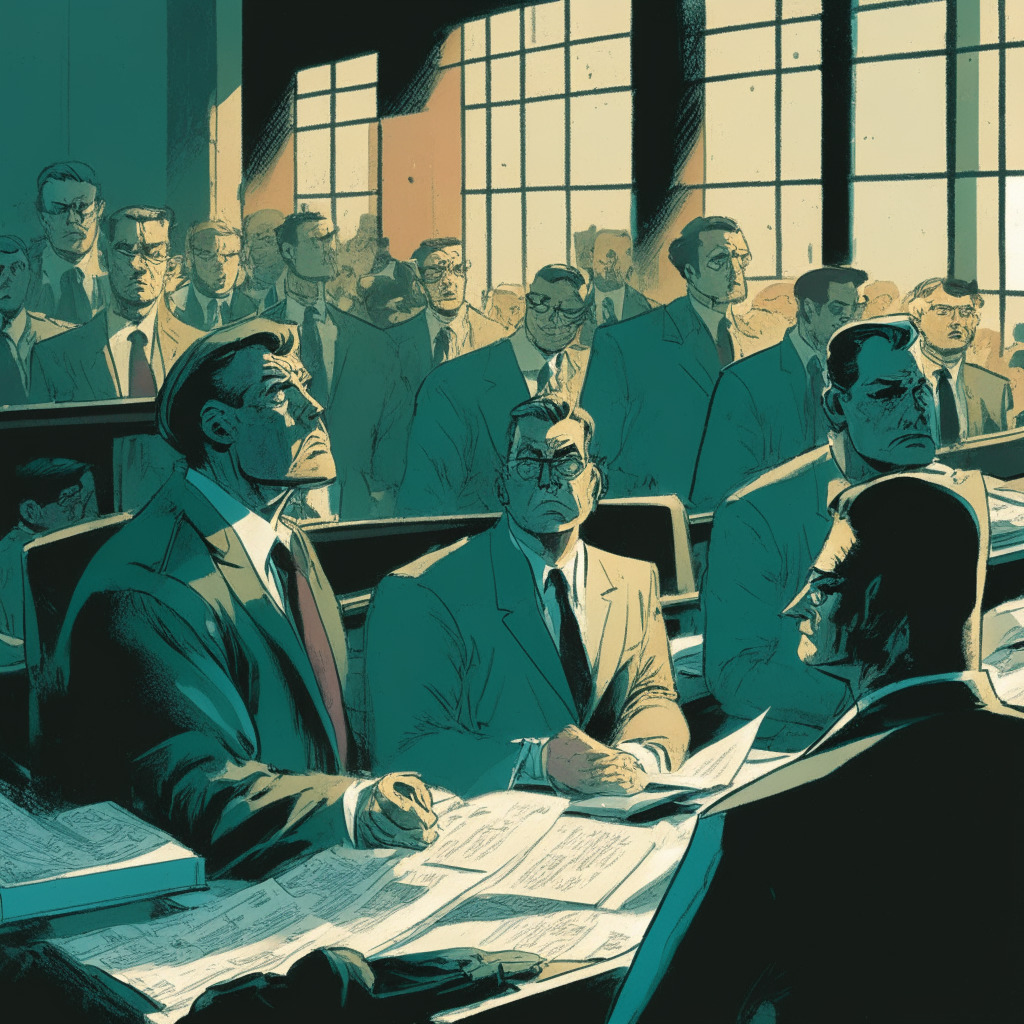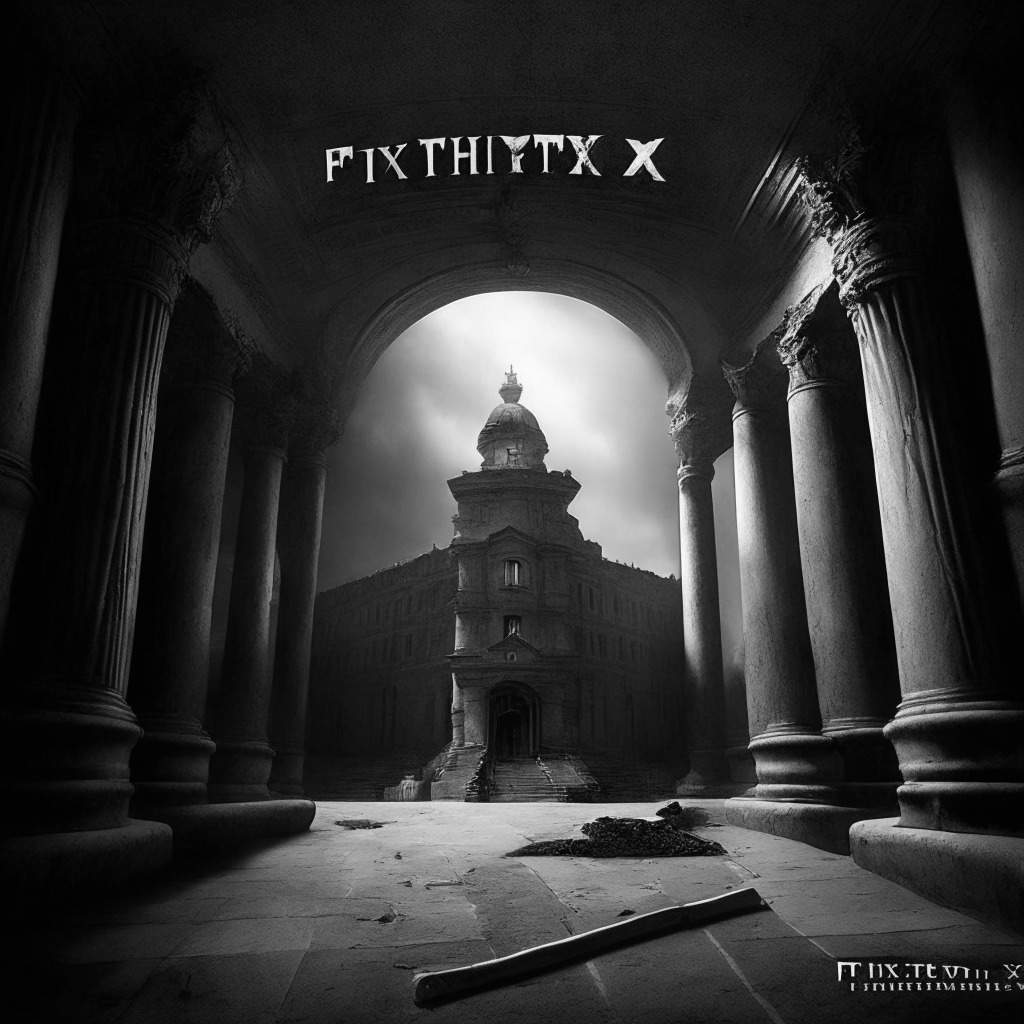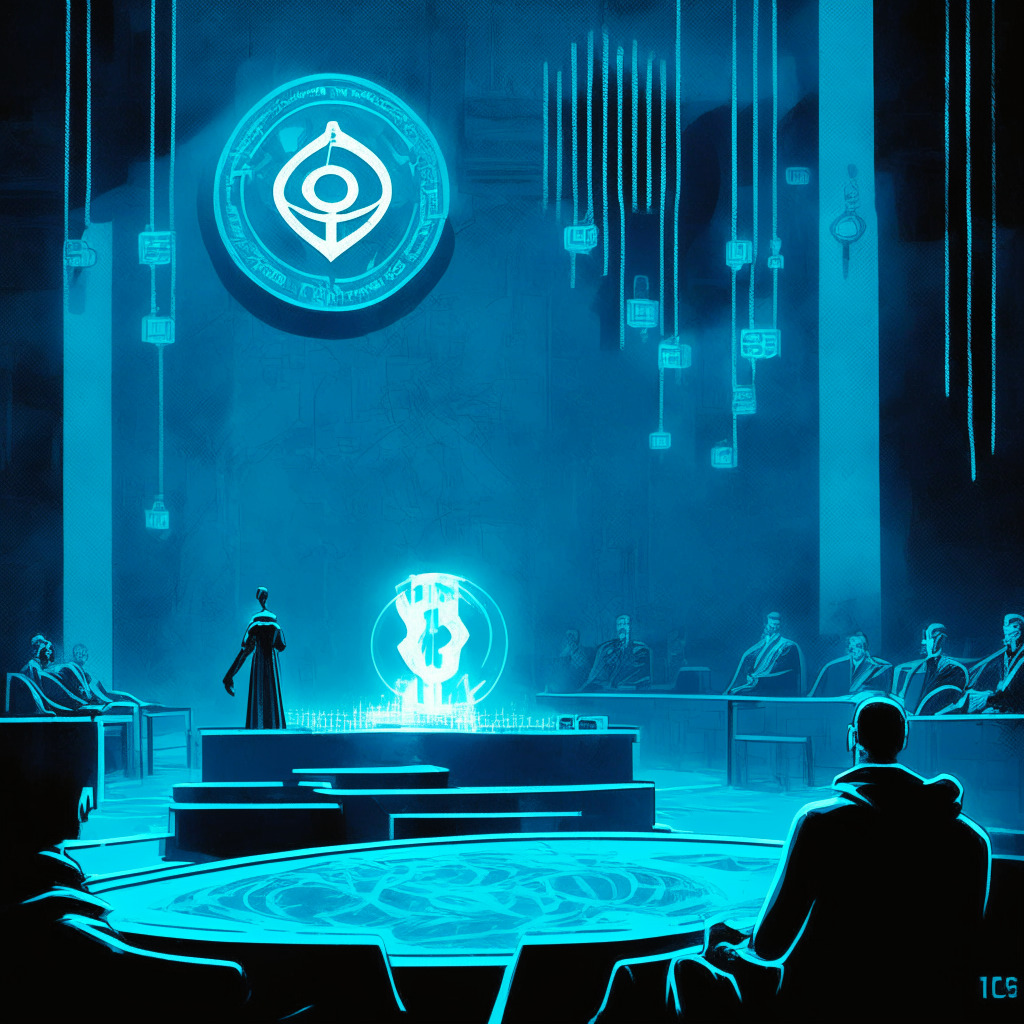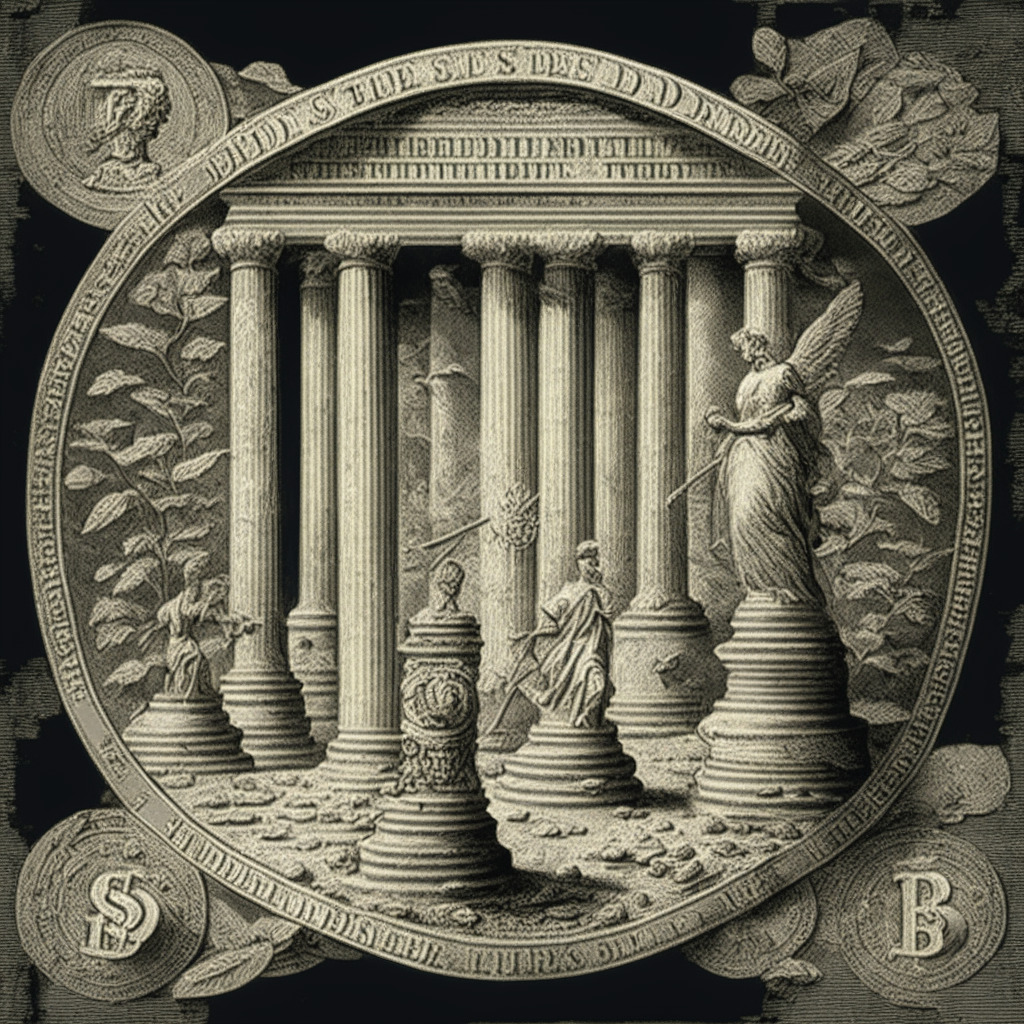“According to analytics firm Glassnode, 88% of short-term Bitcoin investors have seen a drastic reshaping of their expected profitability due to the flash crash to $26,000. Only 11.7% report their investments are still profitable. This market turbulence underscores the need for careful investment strategies and proactive risk management.”
Search Results for: rook
Dissecting the Buzz Around Friend.tech: A New High in Crypto or Regulatory Overstep?
Friend.tech, a social tokenization protocol, shows promising revenue generation within the crypto sphere. With Friend.tech, personalities can issue shares for exclusive group chats, amassing around $709,000 in ether revenue in a day. Besides its appealing growth, the platform raises questions regarding over-economic focus and regulatory oversight.
Drama in the Crypto Arena: FTX’s Co-founder Faces Legal Challenge amidst Accusations of Fund Misuse
FTX’s co-founder, Sam Bankman-Fried, seeks temporary release from detention to strategize with attorneys over documents relevant to his case. Accused of fund misappropriation and more, his ordeal reflects the need for caution and transparency in the fast-paced crypto arena.
Navigating the Crypto Legal Labyrinth: The Case of FTX Founder Sam Bankman-Fried
Sam Bankman-Fried, the embattled FTX founder, has been confined in the Metropolitan Detention Center amidst concerns about cryptocurrency regulations. Bankman-Fried is alleged to have misused blockchain technology, leading to an urgent need for better safeguards. His case raises questions about how to develop protocols that protect cryptocurrency users while also ensuring legal defense facilities.
Crypto Chaos: How BALD’s Creator Shook the Blockchain Market and the Mystery that Follows
The mysterious creator of the BALD token recently moved around $12 million in ETH back to the Ethereum network. This follows BALD’s impressive surge to an $80 million market cap followed by a 90% plunge in prices. The BALD token creator also transferred 2,100 ether to crypto exchange Kraken. Despite the market turmoil, the creator maintains that BALD is a “memecoin” with no intrinsic value.
From Crypto Millionaire to MDC Inmate: The Trials and Tribulations of Sam Bankman-Fried
“Former CEO of FTX, Sam Bankman-Fried, finds himself in the Metropolitan Detention Center in Brooklyn following a judge’s revocation of his bail. His legal troubles came to light after allegations of intimidating potential witness, former Alameda Research CEO, Caroline Ellison by leaking her diary.”
The Downfall of FTX: A Tipping Point for Crypto Industry’s Fragility and Future
The former CEO of FTX, Sam Bankman-Fried, faces potential incarceration amid allegations of witness tampering in a case concerning a massive $3 billion defrauding of customers and investors. His situation has shaken public faith in the crypto industry and prompted tightened regulations.
Crypto Regulations Tighten: Mashinsky’s Trial and the Controversial Role of Stablecoins
Former Celsius CEO, Alex Mashinsky, is restricted in his financial operations and movement due to charges related to cryptocurrency fraud. Meanwhile, stablecoins are being discussed as a way to ensure US dollar’s global dominance, while critics warn of potential instability. The crypto and blockchain world continues to struggle for legitimacy and stability.
Stablecoins: The Potential Lifeline for US Dollar’s Global Dominance and The Challenge of Regulation
Stablecoins could potentially retain the global dominance of the U.S. dollar, countering “de-dollarization”. The authors express that with proper regulatory frameworks, stablecoins could reestablish the U.S. dollar’s role in international trade and provide relief for hyperinflation-affected economies.
Bounty Offered to Crypto Hackers: Bold Strategy or Risky Precedent?
“The crypto victims of the recent lending reentrancy attack have proposed an unconventional solution – a 10% bounty for the return of the stolen cryptocurrency. An offer that could potentially be a win-win for both hackers and victims, with a deadline to add an edge of tension. However, post the deadline, the bounty becomes an incentive for whistleblowers. This strategy raises questions about the ethical implications and the overall effectiveness of such an approach in preventing future blockchain security breaches.”
Securing Cryptocurrencies: The Silent Threats Lurking in Paper Wallet Generators
“Blockchain security firm CertiK has warned users about the risks associated with popular wallet generators. Incidents involving vulnerabilities and hacking events from these services underline the precarious nature of crypto security. Users are therefore advised to carefully consider their crypto storage and adopt practices that best safeguard their investment in the decentralized world of cryptocurrencies.”
RISC Zero Bags $40 Million for its Bonsai Computing Platform: A Step to Decentralized Security
RISC Zero, known for zero-proof software solutions, raised $40 million in a Series A funding led by Blockchain Capital to boost its innovative Bonsai computing platform. The platform aids developers with incorporating zero-knowledge proofs to enhance application security and complex computations.
Emerging Trend of Crypto Salary: Power Shift or Risky Business?
“Employees are increasingly interested in Bitcoin compensation amid economic uncertainties. Factors like crypto acceptance, education, and advanced technology encourage considering crypto salaries. However, despite the allure of decentralized payroll systems, challenges include regulatory issues and the unpredictability of cryptocurrency.”
Rise of Crypto Salaries: A Solution to Economic Instability or a Risky Endeavor?
Due to economic instability and political tension, more individuals are opting to receive their salaries in cryptocurrencies to hedge against unpredictable fiat currencies. Despite potential hazards associated with transacting in digital currency, the trend highlights a changing world of work and pay with cryptocurrencies at the forefront.
Bitcoin Heated Pools and Beyond: Unleashing Crypto Mining’s Creative Potential
Imagine taking a dip in water warmed by bitcoin miners; a unique system uses heat exchangers to transfer the heat produced from ASICs to the water. Cryptocurrency enthusiasts are finding creative ways to incorporate mining into daily life, from heating pools to powering greenhouses and calming noisy infants.
Heating Pools with Bitcoin Mining: Eco-Concerns vs. Innovative Solutions
Brooklyn-based bathhouse, Bathouse, has implemented a small-scale Bitcoin mining operation to heat its swimming pools. Facing mixed reactions, this unique heating solution sparks debates over environmental impact, while showcasing potential innovative applications of blockchain technology.
Heating Up the Crypto Debate: Bathhouse’s Bitcoin Mining Pool Sparks Controversy
A Brooklyn-based spa, Bathhouse, uses a small-scale Bitcoin mining operation to heat their pools and operates on a “Bitcoin Standard.” This unique heating process generates mixed reactions due to Bitcoin mining’s energy consumption and environmental impact, sparking discussions on cryptocurrency innovation.
Beware of Fake Regulatory Bodies: CSA’s Warning to Crypto Investors
The Canadian Securities Administrators (CSA) issued a warning about crypto firms claiming to have obtained authorization from non-existent regulatory organizations in an effort to appear legitimate. The CSA urges investors to independently verify the veracity of these organizations before engaging with crypto firms claiming certification or memberships.
Alibaba’s New Chairman Sparks Crypto Dreams: Is China Ready to Embrace Web3?
Alibaba appoints crypto-friendly Joseph Tsai as new Chairman amidst restructuring, sparking interest in the crypto community. Tsai is an advocate of cryptocurrencies and digital assets, prompting speculation of Alibaba embracing Web3 and crypto in China. Hong Kong’s recent regulatory framework for crypto shows growing interest in digital assets.
Alibaba Leadership Shuffle: A Step Towards Crypto Adoption in China?
Alibaba’s founder Joseph Tsai, a known cryptocurrency proponent, will become Chairman in September amid company reorganization. This move sparks interest among crypto enthusiasts, suggesting Alibaba might be preparing for potential cryptocurrency and Web3 developments in China.
Blockchain’s Role in Film Industry: A Creative Revolution or Risk to Artistic Freedom?
The documentary “Bad Like Brooklyn Dancehall” highlights the connection between dancehall music and blockchain technology, as it was supported by Decentralized Pictures, a nonprofit using crypto tokens and community voting to fund cinematic arts. The film’s production explores the potential of marrying artistic creations and blockchain, showcasing the pros and cons of this intersection.
Binance.US Halts USD Deposits Amid SEC Pressure: Analyzing Effects on Crypto Markets
Binance.US has halted USD deposits and advised customers to withdraw US dollar funds by June 13th amid pressure on its banking partners due to the SEC’s aggressive pursuit of the American crypto industry. With USD withdrawal services currently unavailable and trading pairs removal scheduled, the situation leaves clients in uncertainty.
PoolTogether Case Dismissed: Unresolved Questions in Crypto Regulation and Consumer Protection
The case of Joseph Kent v. PoolTogether, questioning if the protocol constitutes an illegal lottery under New York law, has been dismissed due to Kent lacking standing to sue. The decision highlights the ongoing struggle for a balanced approach to cryptocurrency and blockchain regulation, aiming to protect consumers while supporting innovation.
ConsenSys Legal Battle: Shareholder Vote, Corporate Maneuvering, and Decentralization Dilemma
The legal battle between ConsenSys and 35 former employees over allegations of transferring core assets and devaluing shares has broader implications for the essence of blockchain technology and highlights the challenges crypto companies face balancing decentralization and corporate maneuvering.
Former Binance.US CEO Reveals Real Power Struggle: Impact on Crypto Market and Regulation
This excerpt explains how former Binance.US CEO Brian Brooks revealed, amidst a legal battle with the SEC, that he left his position due to realizing Binance CEO Changpeng Zhao held the real control. The revelation raises concerns about top executives’ influence in the crypto market and highlights the need for transparent and accountable systems.
AI in TV Writing: Creative Breakthrough or High-Tech Plagiarism? Pros, Cons, & Conflict
OpenAI’s ChatGPT generated a summary of existing “Black Mirror” episodes instead of a new plot, disappointing creator Charlie Brooker. As generative AI potentially impacts human writers, concerns about replacing writers and high-tech plagiarism arise, fueling debate in the entertainment industry.
Binance Lawsuit: SEC vs Crypto Titans – A Battle Over Regulations and Investor Protection
The SEC’s 136-page complaint against Binance includes testimonies from former Binance.US CEOs Catherine Coley and Brian Brooks, alleging faked trading volumes, wash trading, and improper controls. This high-profile lawsuit may significantly impact the future of crypto regulations in the US and worldwide.
Coin Cafe’s Hidden Fees Debacle: Balancing Crypto Regulation and Industry Growth
New York Attorney General Letitia James secured $4.3 million from Coin Cafe, a Brooklyn-based digital currency service provider, for charging undisclosed, exorbitant fees for its “free” wallet storage services. This case highlights the importance of effective regulation in ensuring investor safety and combating deceptive marketing practices in the growing cryptocurrency industry.
Stablecoins as Bail Payments: Innovation or Uncertainty for New York’s Justice System?
New York’s Assembly Bill 7024, introduced by Assemblywoman Latrice Walker, proposes authorizing fiat-collateralized stablecoins as bail payment options. If enacted, it could modernize and streamline the payment process, offering increased efficiency while disrupting traditional bail payment methods. However, critics caution against potential unforeseen challenges in the justice system.
Exploring the $BEN Token Launch: Hype, Skepticism, and Meme Coin Alternatives
The launch of governance token $BEN for Ben DAO has created buzz within the crypto community, amidst divided opinions on its origins and authenticity. As AiDoge and SPONGE gain traction, investors should weigh the risks and rewards associated with volatile meme coin projects.
Aragon Retools DAO After 51% Attack: Debating Treasury Security Vs. Decentralized Governance
Switzerland-based Aragon Association recently pulled plans for voting rights over its future direction due to a 51% attack on its Aragon DAO. The attackers, called “Risk Free Value (RFV) Raiders,” aimed to manipulate the use of Aragon’s ANT token for financial gain. In response, Aragon repurposed its DAO as a new grants program to secure its treasury and mission.
Credibly Neutral Raises $5.5M: Balancing Innovation, Inclusivity, and Potential Pitfalls in Crypto VC
Crypto venture capital firm Credibly Neutral has raised $5.5 million from investors, including Solana and Polygon founders. The early-stage-focused fund aims to invest in protocols, infrastructure, and crypto software-as-a-service projects while promoting credible neutrality and fostering a more inclusive blockchain future.































